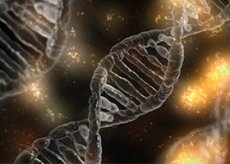Medical expert of the article
New publications
Genetic disease prevents cancer from developing
Last reviewed: 02.07.2025

All iLive content is medically reviewed or fact checked to ensure as much factual accuracy as possible.
We have strict sourcing guidelines and only link to reputable media sites, academic research institutions and, whenever possible, medically peer reviewed studies. Note that the numbers in parentheses ([1], [2], etc.) are clickable links to these studies.
If you feel that any of our content is inaccurate, out-of-date, or otherwise questionable, please select it and press Ctrl + Enter.

Scientists have noticed that patients suffering from Huttington's disease almost never suffer from cancer.
It turned out that the gene responsible for the development of brain disorders simultaneously stimulates the synthesis of the body's own anti-cancer substance.
Researchers representing Northwestern University in Chicago have provided a description of an experiment using a specific molecule to treat rodents with ovarian cancer.
"The specific molecule turned out to be an ideal killer of any cancer cell. We have never encountered such a powerful antitumor weapon before," says one of the authors of the experiment, Markus Peter.
Scientists assure that a new universal drug capable of successfully treating malignant processes and preventing their development will soon be developed on the basis of the discovered substance.
The only sad thing is that another serious disease led to this discovery by scientists.
Huntington's disease is a genetic disorder of the nervous system, in which neurons are gradually destroyed. This pathology is not treated, and only worsens over time. The disease is not common: for example, in America, about 30 thousand people suffer from the pathology. Additionally, about 200 thousand people with unfavorable heredity are under observation.
To date, there is no cure for this disease. This is a rare gene error, which consists of multiple repetitions of a separate nucleotide sequence in the DNA code.
What have scientists managed to discover? Malignant cancer cells have an increased vulnerability to short interfering RNA. This allows doctors to use genetic weapons in the fight against cancer.
"We believe that it is quite possible to cure a cancerous tumor within a couple of weeks - without a side effect affecting nerve cells, as in Huntington's disease," explains Dr. Peter.
Researchers have long studied the issue of the activity of the cell death mechanism. In the course of the final study, they set a goal to find a pathology with the required combination of factors: rapid tissue loss, minimization of cancer incidence and involvement of RNA in the process. Huntington's disease was the most suitable for the experiment. The scientists carefully studied the abnormal gene and discovered a remarkable picture: multiple repetitions of C and G nucleotides are toxic for various cellular variations.
Specialists isolated short RNAs and tested them on the cellular structure of ovarian cancer, breast cancer, brain cancer, liver cancer, etc. Killer molecules demonstrated an unprecedented ability, causing the death of all tested forms of cancer processes. At the same time, the study included work on tumors not only in rodents, but also in humans.
The molecules were delivered to the target using nanoparticles that got directly into the tumor tissues and were "unloaded" there. "The results obtained showed that nanoparticles with short RNA suppressed further growth of the malignant process without causing harm to the test organism and without causing resistance to the treatment," the specialists summarized.
The study is described in the publication EMBO Reports.


 [
[